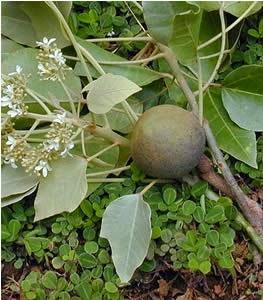 |
| Vaccinium oxycoccos: Cranberry |
Since it IS the season, the glory days of these shiny red fruits, let's delve in a little deeper and glean an understanding as to the health benefits that they tout. When talking about the "big gun's" of cranberries we are mainly talking about it's staggering amounts of vitamin C. Vitamin C is an anti-oxidant that helps your body (and skin) fight off free radicals. Free radicals are a major cause of premature aging for our skin. Also vitamin C helps reduce inflammation making it great for people who suffer from acnea, eczema, psoriasis and other itchy, red, signs of irritated skin.
Let's look at some of the other special qualities that cranberries have:
*Perfect ratio of omega 3, 6, and 9 fatty acids: meaning not only is our skin very willing to
accept this oil as wonderful hydration, it also helps as a catalyst to bring other nutrients into our
skin with ease.
*Anti-yeast and anti-fungal properties: great for a skin and scalp wash. Helps alleviate dandruff, itchy
scalp and dull, limp, lifeless hair.
*High in tocotrienols and tocopherols: (vitamin E) another very powerful antioxidant, power fighter
of free radical invasion to the largest organ in our body system (our skin).
*Vitamin C (already mentioned) is needed in the formation of hydroxyproline and hydroxylisine
and other amino acids required to produce collagen. Collagen is what makes our skin, firm, healthy
and wrinkle free. This is what young vibrant skin has that aging skin lacks.
 |
| Cranberries, Seeds, and Oil |
DIY CRANBERRY POWER MASQUE:
1 tsp plain yogurt
1 tbs raw honey
1/4 c. cranberries
cranberry juice (no sugar added) to moisten as needed
take cranberries and put into blender and liquify. add raw honey and yogurt and continue to blend until a paste is made. If liquid is needed cranberry juice is a great option, another option would be to add milk (as milk has many beneficial properties to skin as a cleanser as well)
Other add ins:
Gelatin: add a few pinches of non flavored gelatin to very small amount of warmed milk or water.
gelatin will help loosen and slough off old, wary cells. great addition for non vegans to this
masque.
Clay: any of your favorite clays (french green, kaolin, etc) 1/4 tsp.
As always we would love to hear from you! Do you have product with cranberries in it? Let us know some of your favorites. Happy Thanksgiving, give thanks and praise.
Until next time,
From us to You.













